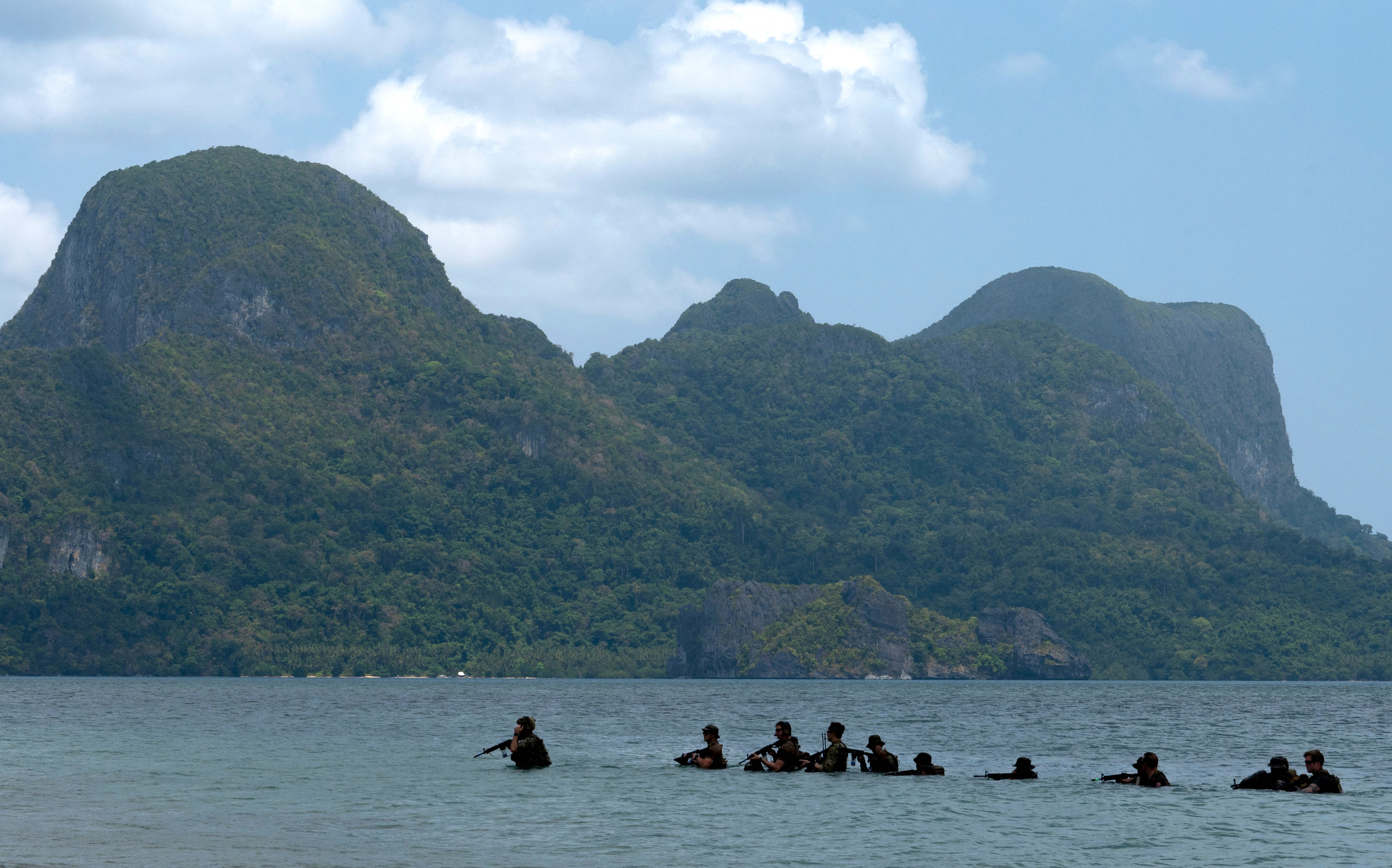
China’s persistent expansion into the South China Sea is the most concerning security concern for the Philippines as its congress is set to approve an expanded basing deal with the U.S., Manila’s ambassador to Washington said on Thursday.
“We’re more concerned about our big neighbor to the north,” Philippines ambassador to the U.S. Jose Manuel Romualdez said at the Center for Strategic and International Studies.
“We’re not going to give one inch of our territory,” Romualdez said. China continues to ignore an international tribunal’s ruling against its territorial claims in the South China Sea.
He expected the Philippine Congress to approve an extension of the Enhanced Defense Cooperation Agreement, or EDCA, that grants the United States access to four more sites for operations. Negotiations over use, equipment to be stationed there and fees are underway.
In May in Washington, Philippines President Ferdinand Marcos said: “We have made it very clear [to the Chinese Foreign Minister Qin Gang], the bases we have opened up under the original [the 2014 Extended Defense Cooperation Agreement] with the United States is really because of the effects of climate change.”
China condemned the new sites, saying they threaten the peace and stability of the Indo-Pacific and are aimed directly at Beijing.
On Thursday, Romualdez added that the Philippines is committed to modernizing its armed forces. Manila believes these steps “contribute to deterrence and are bumping up our defense posture.” While welcoming support from other nations in this program, “we will not let any other country tell us” how to do what best fits Philippine needs.
In the latest move to bolster Manila’s maritime security, the U.S. is transferring four patrol boats to the Philippines that will likely get used for maritime interdiction and search and rescue.
A Chinese frigate nearly collided with a Philippine Coast Guard cutter in late April when it and a companion cutter were on patrol near the contested Spratly Islands. Beijing has built artificial islands for civilian and military use in the Spratlys, which Vietnam also claims.
“We need to have peace and security” to allow the Philippines’ economy and other countries in the Association of Southeast Asian Nations’ [ASEAN] economies to develop and grow, he said.
Romuldaez said Manila wants to be a leader in ASEAN by spurring regional economic growth. He acknowledged that China, which is an ASEAN member, remains the Philippines’ largest trading partner and said it had no quarrel with Beijing in those matters.
He noted several times in the discussion that the U.S. is its sole treaty alliance partner, but that Manila is working on shared security issues with like-minded nations such as Japan and Australia.
“What’s driving these changes [in American military posture in the region] is China,” said Zack Cooper, a senior fellow at the American Enterprise Institute.
“Countries are feeling threatened” by China’s aggressive behavior against other large trading partners, like Australia, India, Japan and self-governing Taiwan. Beijing has targeted Australia economically with tariffs and embargoes and Taiwan militarily by repeatedly probing defenses, and interfering in domestic politics in the Solomon Islands, Malaysia and other Pacific nations. China has also interfered in the domestic politics of the Solomon Islands, Malaysia and other Pacific nations.
Lindsey Ford, the Pentagon’s deputy assistant secretary for South Asia and Southeast Asia, took sharp exception to a question over whether America’s expanding network of partners had set off an arms race with China.
“The United States military has been forward and present in the Indo-Pacific for decades,” she said. The reason for a shift in force positioning, like converting the 12th Marine Regiment to the 12th Marine Littoral Regiment and the rotating fighter and bomber formations going to Australia, is the changing security environment.
“We’re responding to that demand signal” from treaty allies and partners. She pointed to expanded military exercises with the Philippines, Thailand and Indonesia as examples of how others value U.S. training military presence.
Cooper and Ford both pointed out the benefits nations are already receiving from an expanded network for maritime awareness in controlling fisheries and secure mineral deposits.
In opening remarks, Ford said the administration has actively sought to build “action-oriented security networks,” not a NATO-like “one size fits all” structure for Indo-Pacific stability.
While succeeding in security matters, economic development and trade are areas where the administration’s efforts in the Indo-Pacific are falling short, said Cooper. While “political Washington,” his term, concentrates its regional support on competing against China militarily, nations there are looking for American engagement in broader issues like an investment.
“We are ready to talk to everyone,” Romualdez added.





